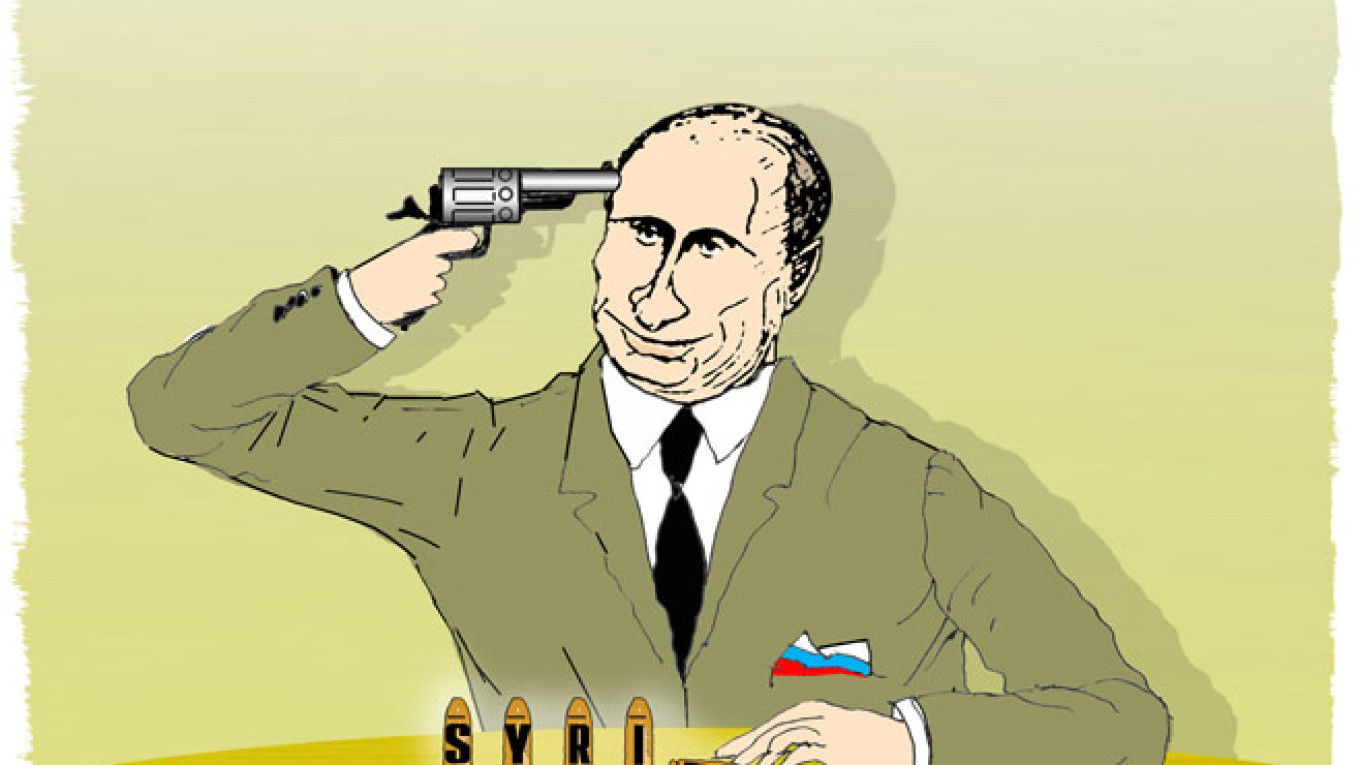Over the past several years the Russian government has offered a nearly constant stream of warnings to the West about the perils of intervening in Syria's civil war. Armed intervention, the Russians said, would lead to the inevitable empowerment of radical forces and to the deepening of the — already vast — cleavages between the country's various ethnic and religious groups.
Pointing to the experience of Iraq and Libya, where Western interventions left power vacuums that were almost immediately filled by various kinds of gangsters and radical Islamists, the Russians said that the result of any military campaign, even one of "limited air strikes," would inevitably lead to total anarchy.
Although intervention might seem like a solution, the Russians said, it would actually create an environment in which already dangerous radical Islamists would become even more dangerous.
Looking at the overall track record of Western, and especially American, involvement in the Middle East, this argument seems like the right one. Over the past several decades the West has militarily intervened in numerous Arab countries, but lasting successes are virtually impossible to find. The disasters, meanwhile, are all too obvious.
However, it is important to think about precisely why a position of skepticism regarding the use of force is so justified.
Despite the fact that it is popularly conceived of as entirely different and distinct from diplomacy or politics, war is simply the continuation of a political conflict through violent means. Yes, the military's uniforms and rigid hierarchy are quite different from what we expect to see in the political realm, but the sense of difference this creates is a false one.
The fundamental goals of any successful military campaign are inherently political in nature: the destruction of an unfriendly regime, the cessation of certain kinds of objectionable activity, or the imposition of control over a certain territory.
Looking at Syria, it is extremely hard to see how the use of organized violence by outside actors would actually address any of the country's multitudinous political conflicts. This is particularly true of most important, violent, and bloody conflict in Syria today, that between the Sunni majority and the ruling Alawite minority.
As was the case in Iraq (where a de facto ethnic partitioning of the country occurred despite the presence of several hundred thousand American and allied troops), a conflict of this nature has a brutal internal logic to it, a logic that, for better or worse, is almost impervious to outside intervention.
Russia's skepticism regarding the ability of outsiders to influence Syria was right, then, not because it was a Russian argument but because the preponderance of evidence suggests that it is the right one. This is important to remember as some voices, particularly those on the "anti-Imperialist" left, have done a very rapid about-face and reconsidered the merits of bombing Syria when they learned that the bombs to be dropped would be Russian and not American.
Writing in The Guardian, for example, Simon Jenkins said that "the only intervention likely to work in Syria just now is from Moscow." The reality, however, is quite a bit more straightforward than Jenkins' tortured logic: If it is a bad idea for the Saudis, Americans, Turks, or Israelis to bomb Syria, then it is also a bad idea for the Russians to do so, and for exactly the same reasons. The laws of logic and evidence don't suddenly stop applying to a foreign military because its officers speak Russian.
So, to summarize: All of the evidence suggests that military intervention will accomplish nothing, and all of the arguments about the likely failure of Western intervention apply equally well to Russia. The bombs, tanks, fighter jets, and helicopter gunships now arriving in Latakia won't be any more effective in solving Syria's political problems because the writing on them is in Cyrillic, and the explosions from Russian airstrikes won't succeed in magically repairing Syria's fractured political institutions.
The Kremlin, of course, can pretend that its intervention in Syria gives it "relevance" and that it means it has returned to a position of power throughout the wider Middle East. It can pretend that its soldiers and sailors will restore the status quo and return Syrian President Bashar Assad to a position of unquestioned supremacy. The Kremlin can pretend whatever it likes.
The reality, however, is that Russia is spending a substantial sum of its ever-scarcer resources on a mission that, by its very nature, is doomed to failure. The only hope, and it is unfortunately a faint one, is that the powers that be recognize this sooner rather than later.
Mark Adomanis is an MA/MBA candidate at the University of Pennsylvania's Lauder Institute.
A Message from The Moscow Times:
Dear readers,
We are facing unprecedented challenges. Russia's Prosecutor General's Office has designated The Moscow Times as an "undesirable" organization, criminalizing our work and putting our staff at risk of prosecution. This follows our earlier unjust labeling as a "foreign agent."
These actions are direct attempts to silence independent journalism in Russia. The authorities claim our work "discredits the decisions of the Russian leadership." We see things differently: we strive to provide accurate, unbiased reporting on Russia.
We, the journalists of The Moscow Times, refuse to be silenced. But to continue our work, we need your help.
Your support, no matter how small, makes a world of difference. If you can, please support us monthly starting from just $2. It's quick to set up, and every contribution makes a significant impact.
By supporting The Moscow Times, you're defending open, independent journalism in the face of repression. Thank you for standing with us.
Remind me later.


